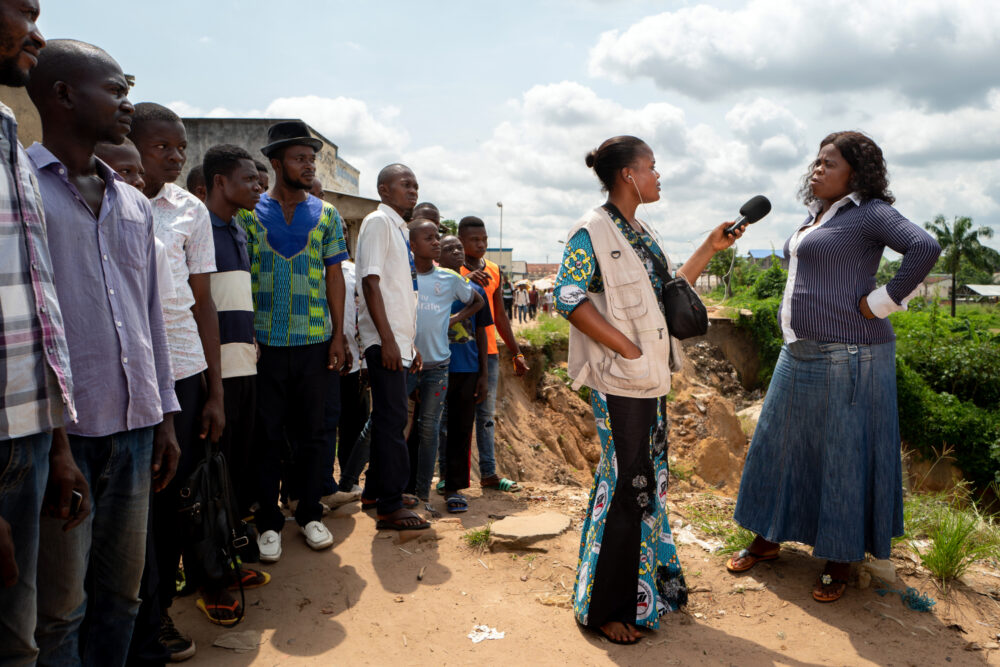Since its creation 25 years ago, Fondation Hirondelle has developed 23 media or information programmes in 22 countries facing major crises, including the DR Congo, Central African Republic, Mali, Myanmar and Madagascar. CEO Caroline Vuillemin looks back on this history and talks about the current Coronavirus crisis.
What impact has the Covid-19 crisis had on Fondation Hirondelle’s activity?
Caroline Vuillemin: With regard to Covid-19, as in all other crises, our recommendations to our editors were first of all to speak only of the facts, and to go to the sources: are there cases recorded in this or that country? What are the WHO and the health authorities in the countries concerned saying? Then, from mid-March, strict compliance with preventive measures was ensured in our studio productions as well as in the field: distance, regular hand washing, wearing masks when possible, washing of microphone covers and so on. Advice to this effect was given to our media partners. Finally, we have developed specific programmes to fight against disinformation and rumours about the pandemic, but also public service programmes such as radio lessons in arithmetic and reading for children confined to their homes in the CAR.
What do you consider to be the main principles of journalism in a crisis context?
Fondation Hirondelle tries to adhere to three principles: transparency, trust and inclusion. With regard to transparency, we do good journalism. In other words, we work using journalistic techniques and ethics that put forward facts rather than opinions and that verify sources. We are also transparent about who we are, how we are funded, what our editorial vision is. With regard to trust, we build the trust that is essential to the credibility of a media outlet, and therefore to its impact over time, by being useful to our audiences on a daily basis. In CAR for example, listeners tell us: „Every morning at 8 o’clock, I turn on my radio, you are there. Despite the war I can count on you“. Our media outlet Radio Ndeke Luka, which has just celebrated its 20th anniversary, has been steadfastly enabling the Central African population to follow and understand what is happening in their country. With regard to inclusion, in fragile societies, sometimes emerging from political or ethnic conflict, we want to give everyone the ability to talk to each other again and to listen to each other again. This starts with the editorial team, which must be representative of society as a whole. In Niger, where more than 50% of the population is under 30 years old but where young people are very little represented among decision-makers, our media outlet Studio Kalangou is developing a programme produced by young people and for young people so that they can exist socially. Another example is in DR Congo, where our editorial staff of Studio Hirondelle DRC has produced a series of reports with testimonies of very young women who have had to undergo early marriages, a taboo subject in that country. Daring to talk about it, to make a programme on the subject, to have it broadcast by more than a hundred partner media, this is the social role of the media that we are implementing.
Transparency, trust, inclusion:
three principles that guide our action
Fondation Hirondelle has been doing crisis journalism since 1995. What in this experience echoes the current global crisis?
The vital need for information, for populations deprived in the face of major crises, has been the „credo“ of Fondation Hirondelle since its creation. Information is a basic necessity. We defend this conviction on a daily basis with our journalists and partners in the field, just as many media around the world defend it. The Coronavirus crisis underlines the social function of journalism, which we are striving to implement over the long term.

